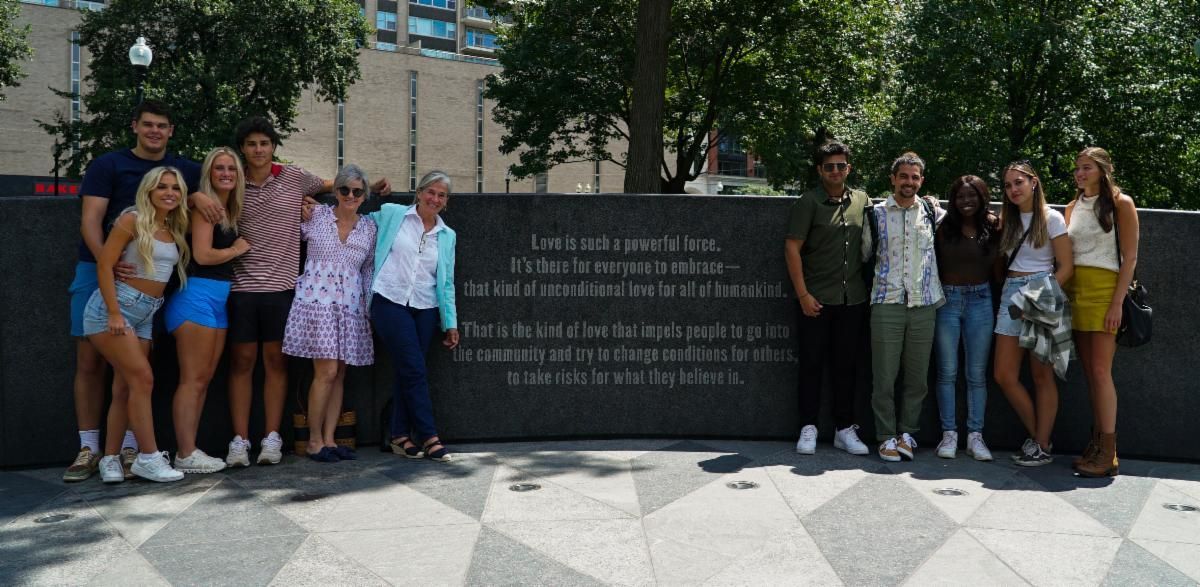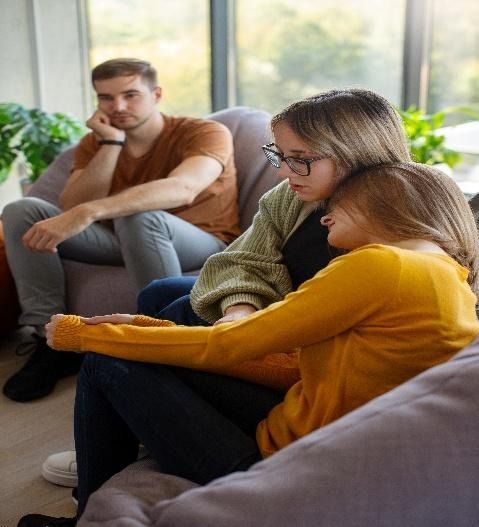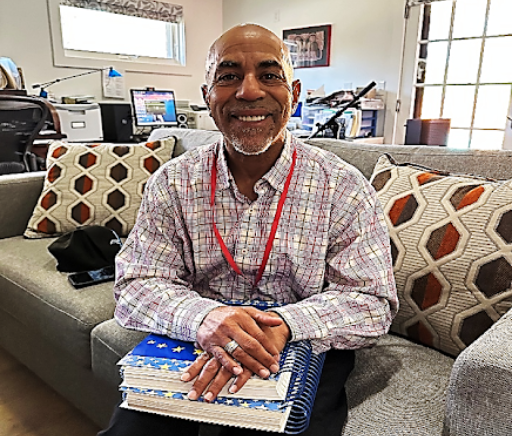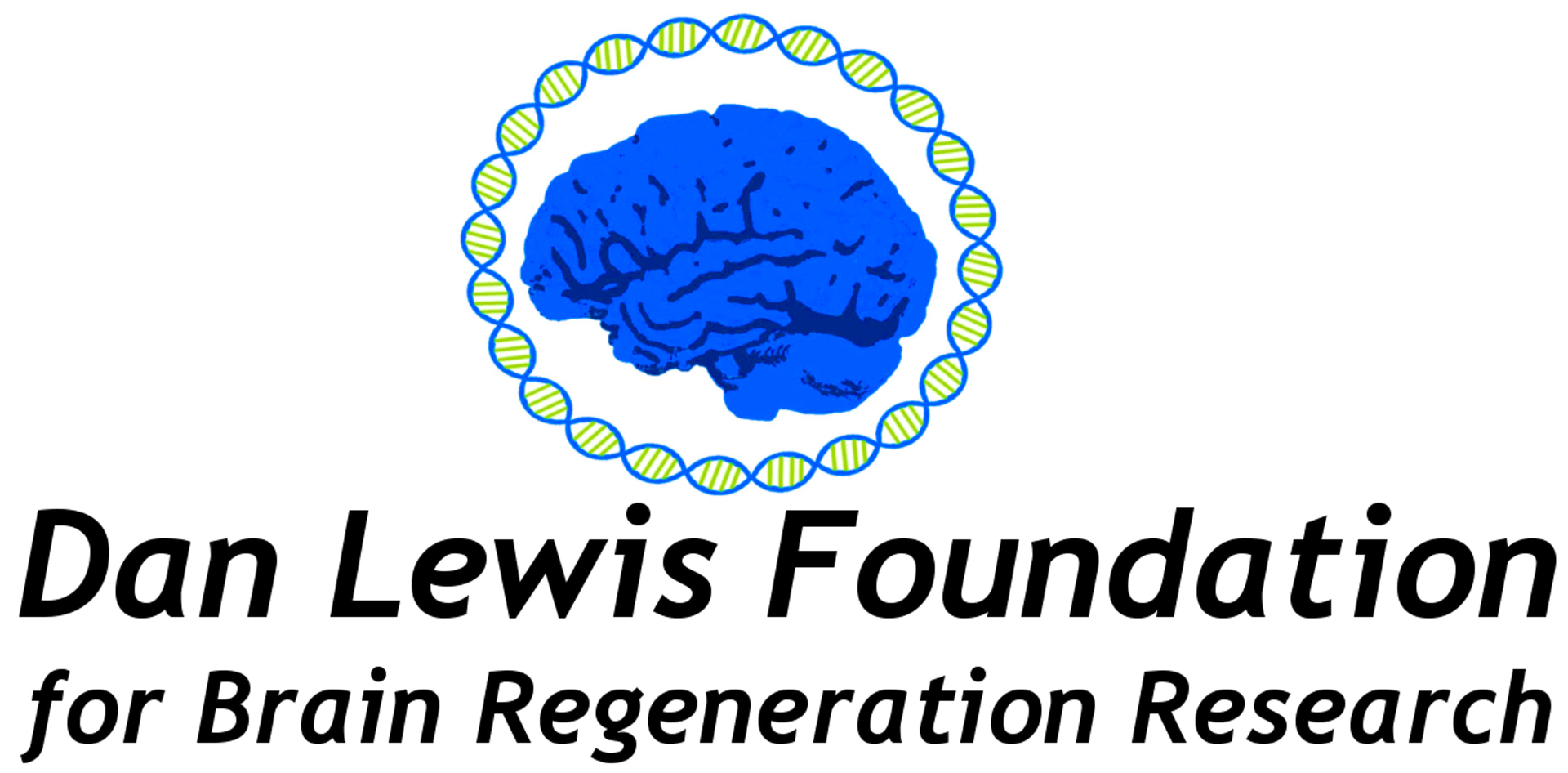This is paragraph text. Click it or hit the Manage Text button to change the font, color, size, format, and more. To set up site-wide paragraph and title styles, go to Site Theme.

"The Brainy-Bunch," a dedicated group of social media influencers and college students, has taken up the mantle as volunteers to support The Dan Lewis Foundation for Brain Regeneration Research (DLF). Their journey began with a visit to a prominent research lab, Quiver Biosciences, located in Cambridge, Massachusetts, as they embarked on the initial steps to raise awareness and fundraise for research to support traumatic brain injury repair and regeneration. Dr. Roy Maimon, a post-doctoral research scientist at the University of California San Diego and the first recipient of the Dan Lewis Prize, joined the group in Cambridge and gave an interactive presentation on his current research on neuro-regeneration. He provided the non-science group with the novel science behind his current research on neuro regeneration.
This remarkable collaboration between The Brainy-Bunch and the (DLF) highlights the powerful potential of partnerships between social media influencers and the scientific community in propelling medical advancements forward. The social media influencers have the audience, and the scientific community has the expertise, with a commitment to work together to change the course of treatment for those in the brain injury community. At Quiver Biosciences, The BrainyBunch was privy to firsthand experiences of the groundbreaking research spearheaded by eminent figures in neuroscience. Dr. Graham Dempsey and Dr. David Margulies, pioneers in their own right, are at the helm of efforts to revolutionize the critical work for brain trauma repair. The DLF seeks to catalyze brain regeneration research and is working with multiple world-class scientists in that quest.
This unique collaboration seeks to raise awareness and funds to support cutting-edge research that holds promise that brain repair and regeneration, once thought impossible, is now plausible. At the same time, the partnership has kindled a flame of hope that actively supports and champions scientific endeavors. Through their expansive reach on social media platforms, The Brainy-Bunch has a unique opportunity to disseminate critical information about brain regeneration research, acting as a bridge between the scientific community and the general public. In the coming months, it is anticipated that this collaboration will bear fruit, generating a swell of support and funding that will catapult brain trauma research into new frontiers. With the backing of the Brainy-Bunch, the DLF hopes to accelerate the pace of research, drawing us ever closer to a world where medications will one day help the human brain to heal itself.
As the journey continues, it will be exciting to witness the synergy between influencers and scientists, a testament to the power of unity in advancing the cause of medical science. The Brainy-Bunch, with its vibrant personalities, wide-reaching influence, and the brilliant minds of world-class scientists working together, is poised to usher in a new era of hope and progress in traumatic brain injury regeneration and repair. The partnership between the Brainy-Bunch and the Dan Lewis Foundation exemplifies how modern influencers can wield their power for the greater good while making tangible differences in the real world. The collaboration serves as a reminder that when passion meets purpose, amazing things can happen.


